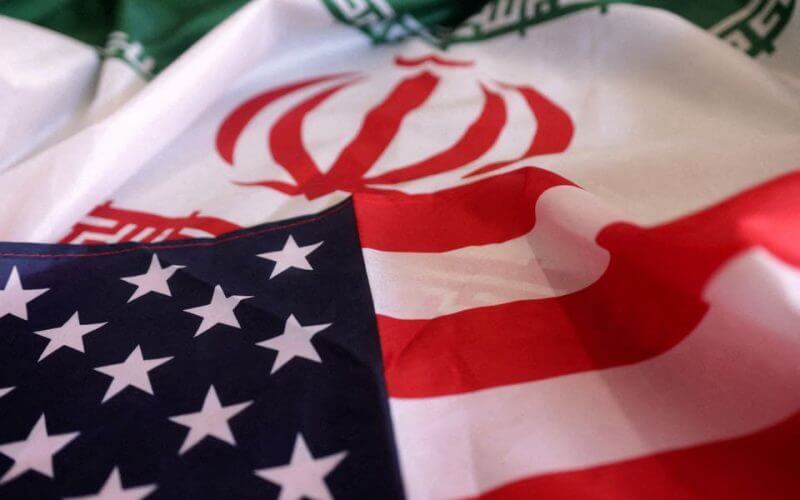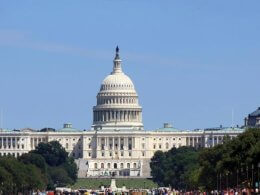1. Cash Relief
Following the swearing-in of President Biden in the 2020 election, the administration got to work to revive the 2015 nuclear agreement scrapped under the Trump administration, outlining terms that granted economic sanctions relief to the regimes' oil economy and more. As a result of the soft approach towards Iran, advocacy group United Against Nuclear Iran (UANI) reported that the Islamic Republic of Iran's illegal oil trade with other anti-American regimes like China increased from $6.6 billion in 2020 to $23 billion in 2021. After the Biden administration de-listed the Iranian-backed terrorist cell known as the Houthis in Yemen from the United States State Department's Foreign Terrorist Organization (FTO) List, this allowed the organization to have the ability to engage in economic transactions with businesses, individuals, and countries to support terrorist actions in Yemen and against the Kingdom of Saudi Arabia and its oil refineries. The money Iran has received from the Biden administration's economic sanctions waiver has allowed it to also support its own internal security from Iranian civilians who have been protesting the regime's downfall in 2019 and then more so over the last six months, following the death of 22-year-old Mahsa Amini at the hands of the regime's morality police.
2. Lobbying Influence
During the Obama administration, individuals from pro-Islamic Republic political organizations like the National Iranian American Council (NIAC) influenced and lobbied then-President Obama and his White House into opening up a dialogue with the Islamic Republic of Iran and negotiating with them over their nuclear program, resulting in the 2015 Joint Comprehensive Plan of Action (JCPOA). During and after the 2020 election, the Biden administration was lobbied by pro-regime organizations, urging the President to open up a dialogue with Iran to revive the 2015 nuclear agreement canceled by the Trump administration. Members of the President's US-Iran envoy include Robert Malley, who argued in favor of the nuclear agreement and diplomacy with the mullahs. Pro-Islamic Republic groups have also met with officials from the Biden White House to de-list the Islamic Revolutionary Guards Corps (IRGC) from the US State Department's FTO to further negotiations and revive the nuclear agreement. While the administration has not de-listed the IRGC as a terrorist organization, officials have pressured the UK and other European allies not to follow the same steps to continue the diplomatic discussions with the regime in Tehran.
3. Loss of Alliances
During the 2020 election, then-candidate Joe Biden described Saudi Arabia as a "pariah" state, arguing to take a harsher approach to the ruling government while favoring negotiations with the Islamic Republic over its nuclear program. As a result, America's relationship with one of its most critical strategic allies in the Middle East has resulted in higher oil prices by the Saudi government at a time of economic uncertainty in America and the normalization between Saudi Arabia and the Islamic Republic brokered by the Chinese government. Following the recent signing of the normalization between Tehran and Riyadh, Iranian-backed terrorist organizations like Hezbollah, Hamas, and the Houthis praised the agreement, describing it as a significant blow to America's presence in the Middle East and the end of any normalization between Israel and the Kingdom. The Biden administration has also taken a more progressive approach to the Jewish State of Israel, showcasing its disdain for the current Israeli Conservative coalition led by Likud Prime Minister Benjamin (Bibi) Netanyahu, who has vowed to get tougher on the Islamic Republic and its Palestinian terror proxies. Despite the pleas by regional leaders and Israeli officials not to revive the 2015 nuclear agreement, the Biden administration continues to press on with its goal, granting the Islamic Republic billions of economic sanctions relief, allowing the regime to maintain itself against ongoing protests.
4. Strengthened Islamic Terror Proxies
Following the Biden administration's withdrawal from Afghanistan in 2021 and the re-emergence of the Taliban taking over the country, Islamic Republic-backed terror cells like Hamas in the Gaza Strip, Hezbollah in Lebanon, the Houthis in Yemen, and Iraqi Shiite terror groups saw the action as a sign of weakness, leading them to increase their terrorist actions against American, Israeli, and Persian Gulf Arab forces. With the administration enacting an economic sanctions waiver for Iran's economy, many of these groups have obtained ample military weaponry provided to them at no cost, leading to more terrorism, violence, and instability in the Middle East. According to a 2021 State Department report on global terrorism, Iranian-backed militia groups in places like Iraq have launched "100 IED attacks" on American coalition forces attempting to defeat ISIS terror groups. Many Iranian-backed fighters have also enacted around "40 indirect fire attacks against US interest in Iraq," read the State Department report. Despite the minimal economic sanctions enacted by the Biden administration, Iran has not faced any serious consequences for supporting Russia in its invasion of Ukraine or propping up the Assad regime in Syria and using it as a staging base for terrorism and weapons transfers.
5. No Support for Regime Change
After the death of 22-year-old Masha Amini at the hands of the Islamic Republic's morality police for her hijab wear in September, young and old Iranians took to the streets throughout the country, demanding the regime's downfall despite facing the regime's security forces, Revolutionary Guards troops, and members of the paramilitary Basiji group. While the Biden administration has condemned the mullahs for the death of the young Iranian woman and for its repressive actions, the sanctions enacted have done little to aid the people of Iran and cripple the regime. Instead, individuals from pro-Islamic Republic organizations have lobbied the administration not to use harsh actions against the Ayatollahs and to maintain diplomacy with Islamic Republic officials in Europe to revive the 2015 nuclear agreement and not to support efforts to overthrow the regime. Many of the Biden White House officials, like Robert Malley and others, have offered a few remarks of support of the protests but have argued that the best way for the US to deal with Iran is through diplomacy, despite Iranians in America and Iran asking for the administration to take a stronger stance against the Ayatollahs in power. As protests continue to rage on today in Iran, the Biden administration has refused to say whether or not the nuclear agreement is officially dead, opening up the opportunity for the Islamic Republic to obtain economic sanctions relief to support itself from the revolution.
Related Story: Biden Admin Wants Allies to Keep Quiet as Iran Comes Closer Than Ever to Nuclear Capability










